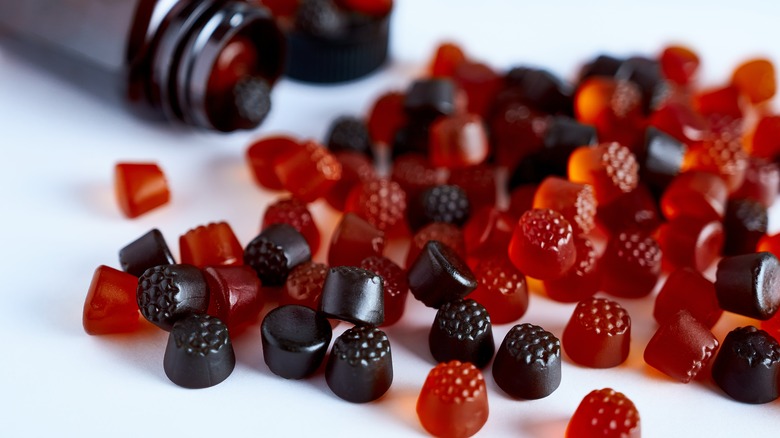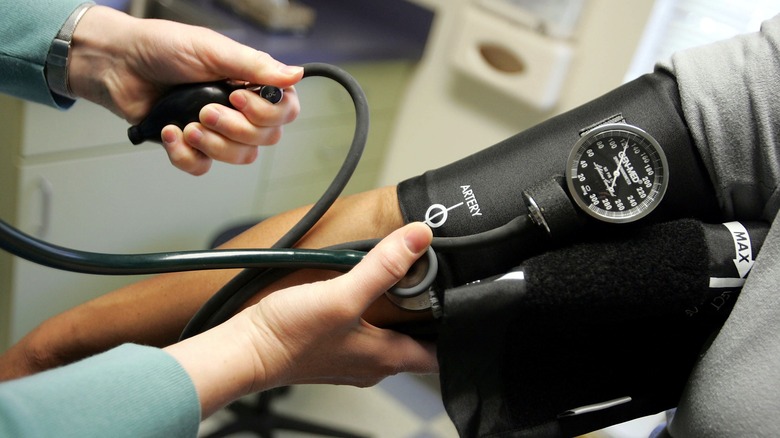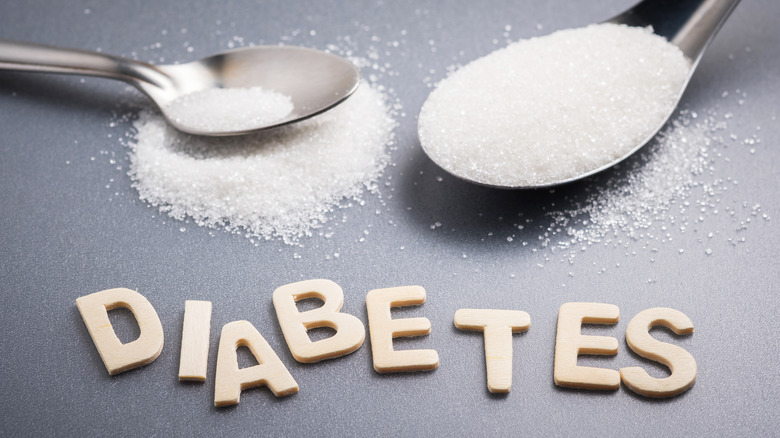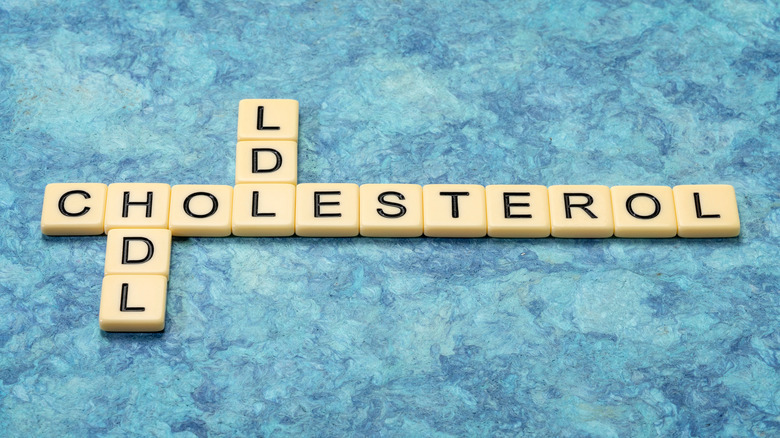The Benefits Of Beetroot Gummies Explained
According to Healthline, beetroot is high in important vitamins and minerals like folate, manganese, copper, potassium, magnesium, vitamin C, vitamin B6, and iron. A 2020 report published in Nutrition and Metabolism stated that beetroot has several biologically-active phytochemicals including betalains, flavonoids, polyphenols, saponins, and inorganic nitrate, which can have beneficial effects. This colorful vegetable is also low in calories, making it a healthy addition to salads and other dishes.
Not everyone enjoys the flavor of beetroot, however. For these people, a good alternative for getting the benefits of beetroot is to take a supplement in the form of a powder, pill, or gummy. Gummies, in particular, are favored by many people because they are easy to swallow, taste better, and smell better, according to WebMD. They allow people to get the benefits of supplementation in a form that makes it more likely that they will continue with it long-term.
When it comes to the health benefits of beetroot, there are several specific areas that have been studied.
Blood pressure
One potential benefit of consuming beetroot gummies could be lowering elevated blood pressure.
A 2013 review published in The Journal of Nutrition found that drinking 250 milliliters of beetroot juice for four weeks reduced blood pressure by 8/4 millimeters of mercury (mmHg), which compares favorably with the 9/5 mmHg average reduction associated with a single prescription blood pressure medication. Researchers speculated that it might be due to the nitrate content of the vegetable, which may lower blood pressure by helping blood vessels open up wider.
A 2014 study published in the journal Hypertension found similar results, with those drinking 250 milliliters of beetroot juice daily experiencing a significant reduction in blood pressure.
Additionally, a 2019 study found in Hypertension showed that small amounts of beetroot or inorganic nitrate may help protect from salt-induced high blood pressure in rats. This led the authors to suggest that adding these substances to salty foods might be a good way to mitigate the blood pressure-raising effects in humans.
Diabetes
A 2014 study published in the Journal of Nutritional Science indicates that there is some potential that the phytochemicals present in beetroot could help with glucose and insulin regulation. This particular study examined how beetroot juice influences blood sugar after meals. Researchers found that drinking 225 milliliters of beetroot juice caused blood sugar to be significantly suppressed in participants following a meal. However, the authors noted that the study subjects did not have diabetes, so more research is needed in order to prove that beetroot can help those with this condition.
Dr. Pakhi Sharma of PhableCare writes that beetroot contains betalain and neo betanin, which help to reduce blood sugar and improve insulin sensitivity. She further notes that it contains alpha-lipoic acid, which may help reduce the nerve and eye damage that can occur when blood sugar remains too high. However, a 2012 article in the International Journal of Endocrinology states that the benefits of alpha-lipoic acid may only exist when it is injected, making oral beetroot supplements ineffective for this purpose.
High cholesterol and triglycerides
Consuming beetroot can potentially keep your heart healthy by reducing harmful lipids like low-density lipoprotein (LDL) cholesterol and triglycerides. Additionally, it may raise "good" high-density lipoprotein (HDL) cholesterol, says Livestrong.
A 2015 study in the Journal of Pharmacy and Nutrition Sciences found that beetroot juice supplementation resulted in significant improvements in HDL cholesterol levels in participants after 15 days. Additionally, it appeared to lower LDL levels.
A 2020 study appearing in the Medical Laboratory Journal showed that young female soccer players experienced increased HDL — along with reduced triglycerides, total cholesterol, and LDL — after drinking beetroot juice.
However, it is not yet proven that this supplement can help with high cholesterol. A 2021 meta-analysis published in Current Problems in Cardiology concluded that, overall, it does not appear to be an effective way to alter lipid profiles. When researchers pooled the results of all studies done prior to December 2020, they found that beetroot juice consumption had no significant effect on any of the variables studied.
Athletic performance
A 2021 review of literature published in Frontiers in Nutrition examined beetroot as a natural source of nitrate, which might help improve athletic performance. The authors explained that nitrate is metabolized to nitrite and then nitric oxide. Nitric oxide is a compound that can act as a regulator of certain cellular functions, as well as cause dilation of blood vessels increasing blood flow. It is thought that it might improve athletic performance by increasing oxygen, glucose, and other nutrients needed to fuel muscles. This compound plays a primary role in anabolic hormones, as well as regulating the release of certain neurotransmitters and stress hormones that are produced during exercise. The authors concluded that supplementation with nitrate-containing beetroot can create several beneficial effects that ultimately improve performance in athletic training and performance.
Other compounds found in beetroot can also have positive effects, they noted. For example, betalains have antioxidant and anti-inflammatory properties. Also, phenolics like caffeic acid, epicatechin, and rutin are protective against DNA, protein, and lipid damage.
Cancer prevention
A 2021 review in the Journal of Cancer Prevention summarized what is currently known about beetroot as a functional food for cancer prevention. The review indicated that beetroot extracts and betanin pigments found in the plant were effective in preventing experimentally-induced cancer. Additionally, the flavonoids and polyphenolic compounds present in beetroot were found to have anti-inflammatory and antioxidant properties. It is not yet understood how it might protect against cancer, however. Thus far, there haven't been any studies specifically looking to answer this question. Researchers have not studied if it might help with cancer-associated symptoms, like fatigue or quality of life.
The authors also noted that more study is needed regarding the safety of beetroot supplementation in those receiving cancer drugs. They cited a case report where a woman developed methotrexate intoxication after drinking beetroot during treatment. The researchers further stated that beetroot supplementation might potentially be problematic for certain populations, including pregnant women, people with metabolic syndrome or diabetes, or people at risk for kidney stones. They suggested that more research into its safety is needed before it can be recommended for use in cancer patients.





